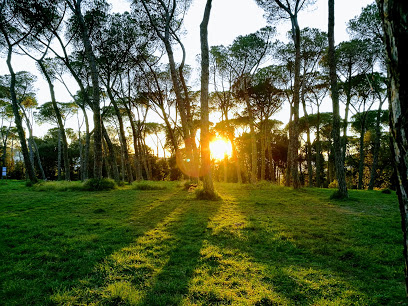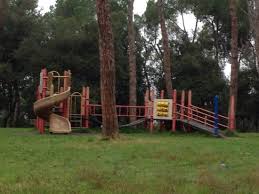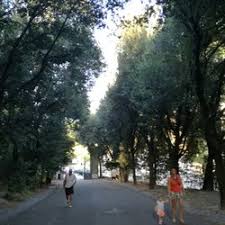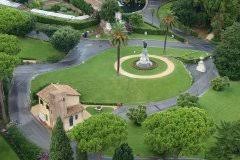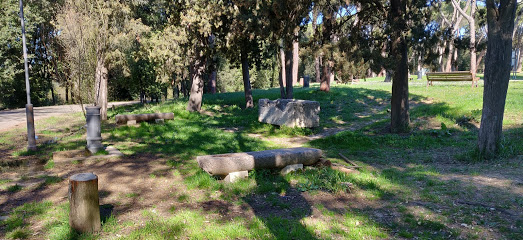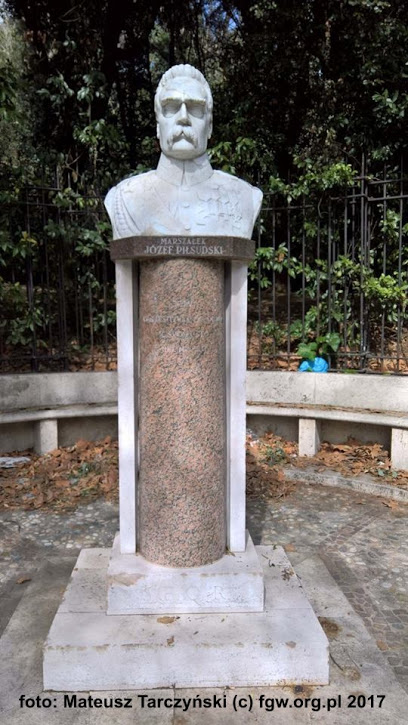For centuries that hill was known mostly for vineyards and hunting. Between 1908 and about 1950 its lower positions were the location of the race track. In 1923, the property became - which belonged to the Boncompagni family.
It was then renamed the Memorial Park, and probably still, by some. There is still a big stone for those killed in the war, even though it has better days. One of the stones (below) lists the locations of the battles, including Gorizia and Vittorio Veneto.
In 1929 three wings were built at the top of the hill, for summer camps for poor or at-risk children. In 1988, the buildings were rebuilt to become an AIDS treatment center. We did not see the buildings (or maybe we did and failed to note). Tell us if you find.
More interesting: In 1997, the city and Italian art critic Daniela Sures developed a garden workshop, exhibited some contemporary sculptures; it was updated in 2001. The picture below seems to be one of the statues. We have not seen anyone else.
the campaign. One of the strangest of Rome
Archaeology.
More excitement to follow. Villa Glory is undoubtedly famous for the battle that took place there in October 1867. At that time, Rome remained outside the borders of a united Italy (almost). It was controlled by the French and the Papacy. About 70 volunteers, part of the Garibaldi Corps led by Enrico Cairoli, marched from Terni in an attempt to liberate Rome. They crossed the Tiber with Aniene and made their way to Villa Glori, where they occupied a large house on what was then Monte Parioli. A large force of Swiss police officers and elements of the papal army attacked potential editors. Joint security, including two bayonet charges by Garibaldini. Enrico Cairoli, as well as his injured brother John, died two years later. In 1895, a column was erected, still standing (now appears as an asphalt car park), commemorating the Cairley brothers and their fellow soldiers. Egypt's Cairoli is known as the Agro Romano Campaign for the Liberation of Rome (Rural Campaign for the Liberation of Rome).
The house occupied by Garibaldini in 1867 is known to remain, although we can not confirm it. What we can confirm is the place where the Romans run. There is also a small but popular playground for children. Londoners who have grown accustomed to the large, well-maintained, well-kept garden of Greenwich will not like it. But the Romans seem to like them.

